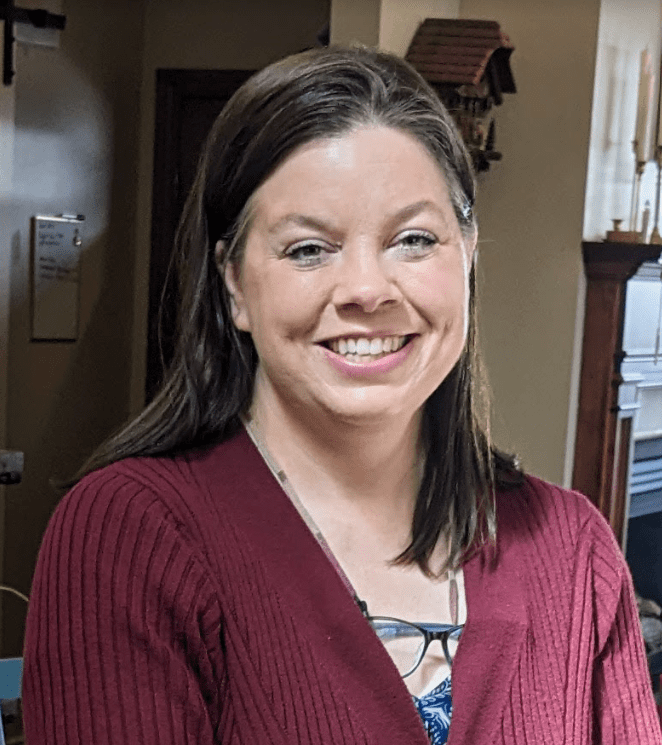
by Maren Chen
One of my favorite moves of all time is the 1939 classic “The Wizard of Oz.” This is a film that I have watched many times since early childhood, and it has resonated for me in different ways at different points in my life. As a little girl, I mostly loved the singing and dancing, Toto the dog, and that magical moment when Dorothy’s boring black-and-white world goes full Technicolor. More recently, it has occurred to me that there are many ways in which “The Wizard of Oz” could be read as a metaphor for a faith transition.
When Dorothy arrives in the Land of Oz, she wants just one thing: to return to live with her family again. She is told—not just told, but repeatedly assured—that there is one and only one way for this to happen. She must follow a prescribed path. If Dorothy does not deviate from this path, then all her dreams will come true. She will find herself in a wonderful, happy place where dwells the amazing Wizard, a great and marvelous and benevolent being with the ability to make anything happen. Sound familiar? So Dorothy, sweet and innocent, begins her journey along this path, full of trust and high hopes. Along the way, she makes a few friends: the Scarecrow, the Tin Man, and the Cowardly Lion. Each is sure that he is lacking something, just as Dorothy is. The Scarecrow believes he does not have a brain, the Tin Man believes he does not have a heart, and the Cowardly Lion is certain he lacks the courage a lion ought to have. Dorothy assures her new friends, just as she has been assured, that the wonderful Wizard can make all of their dreams come true. All they have to do is follow the path.
When Dorothy and her friends arrive at the Emerald City, the Wizard gives them a job to do, in order to prove themselves worthy of his aid. After a great deal of trial and tribulation, the four friends accomplish this task and retrieve the Witch’s broomstick for the Wizard. Do you remember what happens next?
Of course you do. Dorothy, the Scarecrow, the Tin Man, and the Cowardly Lion, discover a truth that they never expected: the Wizard is a fraud and a con-man who hides behind a curtain and puts on a show for his followers. In reality, he has no power. The four friends feels deceived, disillusioned, and angry.
This is where the story takes an interesting turn. In reality neither the Scarecrow, nor the Tin Man, nor the Cowardly Lion, nor even Dorothy, actually NEED the Wizard. None of them are as deficient or inadequate as they believe themselves to be. Brain or no brain, the Scarecrow has proven himself quite intelligent, repeatedly coming up with the best ideas to solve the group’s problems and accomplish their goals. Heart or no heart, there can be no doubt that the Tin Man feels and demonstrates love and empathy for his friends. And the Cowardly Lion is really quite brave, but his bravery is best demonstrated when he is acting in the defense of others, not himself. And Dorothy . . . well, we’ll get to her later.
But this is not enough for them. They want something tangible—some kind of proof or evidence that they are not lacking. So the Wizard obliges. He gives the Scarecrow a “brain” and an honorary Ph. D. in “Thinkology.” In reality, the “brain” is simply a mass of straw and needles, and the Ph. D. is a meaningless piece of paper (insert joke about my Art History degree here). But it doesn’t matter. The Scarecrow is pleased with his brain and his diploma, and now he is convinced that he is an intelligent being.
The Wizard gives the Tin Man a “heart” and a testimonial. The “heart” is shaped out of silk and filled with sawdust, and the testimonial is a watch. Again, it does not matter that these are simply objects, and have no real meaning. The Tin Man is satisfied that he can love and feel.
The Wizard then gives the Cowardly Lion a drink that he says will provide courage, and a medal for bravery. (Side note: The contents of the drink are a mystery, and as I was writing this blog post, I wondered if it might be an alcoholic drink of some kind. I assume you’ve heard of the term “liquid courage.” Alas, a quick internet search revealed that this term did NOT originate with “The Wizard of Oz.” Wouldn’t it be great if it did, though?) Again, these are meaningless objects, but again it does not matter. The Lion is satisfied that he is no longer cowardly.
As for Dorothy, she finds out that the ruby slippers she had been wearing all along will provide her the ability to return home to her loved ones.
Aside from the ruby slippers, which are actually magical, none of the items the characters receive have any real power. Or do they? We know from various medical studies that placebos work. To be more precise, “placebos work on symptoms modulated by the brain, like the perception of pain.” (The power of the placebo effect – Harvard Health). Would it be fair to call the Wizards’ gifts placebos? Or, rather, are they symbols of the qualities the recipients needed to be assured of? Placebos? Symbols? Does it matter?
As I consider my recent confirmation, I wonder about its significance. When one is confirmed a member of Community of Christ, there is no theology about the “gift of the Holy Ghost” being bestowed through that confirmation. Prior to my confirmation, I was not lacking in anything.
I have always had the Holy Ghost. I have always been in the presence of God, because he/she/they are all around us. Always. Organized religion does not give us anything that we actually physically—or metaphysically—NEED. And yet, like the Scarecrow, and the Tin Man, and the Cowardly Lion, I wanted the placebo. I wanted confirmation as a symbol of the Divine in my life. Not everybody wants that symbol, which is perfectly understandable. But I did.
Why is this? Why do we—at least some of us— want placebos? Why do symbols matter? I don’t know. But that’s okay. The point isn’t to KNOW anything with certainty. There are a great many things in life that we are simply not meant to know. The point of the journey, for Dorothy, was to better appreciate what she already had. The point of my journey thus far has been to come back home to myself. And, as the famous line says “There’s no place like home.”



